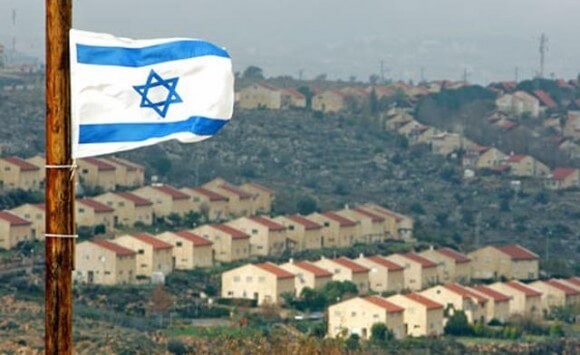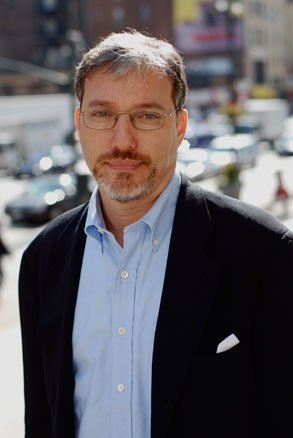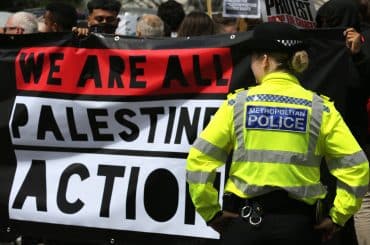
As we all know, liberal Zionism is in crisis. J Street is locked down for Israel– and losing former staff and supporters. Michael Walzer of Americans for Peace Now acknowledges that Israel has damaged global support by killing so many civilians, but he’s largely supportive of the war, chiefly blaming Hamas for the civilian deaths. Eric Alterman deeply disagrees with leftwing calls for Israel to be prosecuted for war crimes; and his “Third Narrative” initiative had barely a word to say about the war except that Hamas uses human shields and BDS is the real enemy. Peter Beinart and MJ Rosenberg have shown great integrity in their criticisms of Israel, but the liberal gold standard, Amos Oz, says Palestinians are digging tunnels into Israeli nurseries and trying to kidnap Jewish families, and oh, as soon as the settlements are removed, Palestinians in the West Bank will live in “freedom and prosperity”. All the handwringing and killing and crying are mocked by Adam Shatz in a brilliant satire of a liberal Zionist’s interview at +972 (“How would you feel with the Ho Chi Minh trail running beneath your beaches?”).

At The National, Joseph Dana writes that the Gaza onslaught has deepened the understanding that the two-state solution is a dead letter because Israel’s militant response to Palestinian unity shows that it has no intention of allowing a viable Palestinian state to emerge; and this understanding deprives liberal Zionists of oxygen. For decades, they could say that the solution is obvious. But Israeli political culture has moved on without them.
Dana quotes Dimi Reider saying that Reuven Rivlin, the new Israeli president, is mainstreaming the one-state discourse from the right– “by emphatically legitimising and embracing settler communities and maybe even reaching out to Palestinian ones – making settlement eviction and partition appear a lot less self-evident as a path forward.”
Dana then explains that the end of the plausibility of the two-state solution presents a crisis for an international movement, liberal Zionists, who needed it to be able to sell the idea of Jewish democracy as a desirable liberal outcome:
Despite a well-documented unwillingness to cede territory and reformulate its control over Palestinian life in the occupied territories, Israel invested heavily in a handsome PR campaign designed to show the international community that it was interested in a two-state solution. While international civil society accepted this with varying degrees of scepticism, Israel’s liberal leftists and its supporters around the world, who often call themselves liberal Zionists, accepted this PR strategy wholeheartedly. As Jonathan Freedland recently noted in The New York Review of Books: “For nearly three decades, the hope of an eventual two-state solution provided a kind of comfort zone for liberal Zionists, if not comfort blanket.”
It is this contradiction that doomed the Israeli left and is now difficult to conceal. Zionism as an ideology has always been difficult to reconcile with liberalism. This is all the more profound in wartime, when nationalism seemingly paralyses every sector of Israeli society with a sink or swim mindset.
“The Jewish left has been dwindling for years because the demarcation lines are becoming clearer. It is becoming more and more difficult to be both a Zionist and a leftist, even a Zionist and a liberal. Most people choose Zionism over a left politics. But this is part of a long process,” says [Neve] Gordon.
The latest Gaza conflict, coupled with a new willingness of Israel’s leadership to speak honestly about their long-term ambitions in the Palestinian territories, means that talk of a two-state solution and a viable partner in Israeli society that can help push the government to make painful concessions is out of the window. The message to the international community from Israel’s leaders is unequivocal: the occupation cannot and will not be ended; Hamas will administer Gaza and the Palestinian Authority will administer the West Bank – both under the shadow of Israeli security control. Talk of a two-state solution in any meaningful sense remains illusory; the status quo will be enforced – by military force if necessary – for the foreseeable future.
In a word, liberal Zionists who choose to remain Zionists will be compelled to say, We are for managed conflict over Palestinian freedom in order to preserve a Jewish state. Not a happy spot.
(P.S. I’m aware that the Gaza onslaught has also contributed to a conservative position, These people hate each other so much that one state is impossible. But it is one state right now, and– that’s a longer discussion.)


We are for managed conflict over Palestinian freedom in order to preserve a Jewish state, no matter the negative consequences for non-Jewish citizens within that state.
Haaretz talked to Israel Prize laureate and renowned scholar Zeev Sternhell about his fears for the collapse of Israeli democracy.
Of all the phenomena you’ve encountered here, which do you find ugliest?
“What we’ve seen here in the past few weeks is absolute conformism on the part of most of Israel’s intellectuals. They’ve just followed the herd. By intellectuals I mean professors and journalists. The intellectual bankruptcy of the mass media in this war is total. It’s not easy to go against the herd, you can easily be trampled. But the role of the intellectual and the journalist is not to applaud the government. Democracy crumbles when the intellectuals, the educated classes, toe the line of the thugs or look at them with a smile. People here say, ‘It’s not so terrible, it’s nothing like fascism – we have free elections and parties and a parliament.’ Yet, we reached a crisis in this war, in which, without anyone asking them to do so, all kinds of university bodies are suddenly demanding that the entire academic community roll back its criticism.”
Do you think it’s due to fear?
“Fear of the authorities, fear of possible budgetary sanctions and fear of pressure from the street. The personification of shame and disgrace occurred when the dean of the law faculty of Bar-Ilan University threatened sanctions against one of his colleagues because the latter added a couple of sentences to an announcement about exam dates in which he expressed sorrow at the killing and loss of life on both sides. To grieve for the loss of life on both sides is already a subversive act, treason. We are arriving at a situation of purely formal democracy, which keeps sinking to ever lower levels.”
When will we cross the line in which democracy implodes?
“Democracy rarely falls in a revolution. Not in Italy, not in Germany and not in France with the Vichy regime – which is a crucial thing, because France was a democratic country that fell into the hands of the right wing with the support of the vast majority of the population. It was not the fall of France that generated this ideology. It was the result of a gradual process in which an extreme nationalist ideology took shape, a radical approach that perceives the nation as an organic body. Like a tree on which human individuals are the leaves and the branches – in other words, people exist only thanks to the tree. The nation is a living body.
“In Israel, the religious factor strengthens the national singularity. It’s not a matter of belief, but of identity; religion bolsters your distinctive identity. It’s essential to understand that without this radical nationalism there is no fascism. I also distinguish between fascism and Nazism, because fascism does not necessarily carry a race doctrine. Let me put it in no uncertain terms: Fascism is a war against enlightenment and against universal values; Nazism was a war against the human race.”
Do you see a negation of universal values in Israel and a war against enlightenment in recent years?
“It cries out to heaven. Israel is an extraordinary laboratory in which one sees the gradual erosion of enlightenment values, namely the universal values I mentioned. You see the negation, which always existed on the fringes, slowly impinging, until one day it dominates the center.”
http://warincontext.org/2014/08/13/fascism-in-israel-the-intellectual-bankruptcy-of-the-mass-media-in-this-war-is-total/
Where one-state advocates explained what changes would be necessary in Israel’s legal system, including property rights (or the role of religion and regulation of religion) for allow such state to function?
Would Jewish settlements in West Bank and Gaza be viewed as owned by the current occupants, or stolen?
What about the lands controlled by Jewish ethnic organizations, majority of all lands?
Addressing such questions is no easier than removal of all settlements I have mentioned. In this sense, “one-state” is a punt. In the process of addressing questions that I have mentioned, one or two state solution can be selected, and some interim reforms applied.
Liberal Zionism is in crisis because it does not stand for anything. Neo-Zionists present a coherent vision of supremacist state, while liberal are reduced to feeble complains, “insufficient care to avoid civilian casualties”, which is the fault of Hamas, of course, but nevertheless GoI could do more, and we should improve the humanitarian conditions, but in a way that could not possibly be credited to Palestinian radicals, because that would be worse than any humanitaian considerations. Basically, this is a mental condition that precludes any kind of consistency or ethics. Everything is about sounding sensitive, sounding reasonable, sounding intellectually superior to “both sides” (but we must choose the Israel’s side), everything ersatz. They are perhaps more in crisis now, not because the perspective of two-state solution is vanishing, but because this self-centered mode of thinking is less appealing when thousands are being killed and maimed.
Only two kinds of people, pro-slaughter and anti-slaughter. There’s not really any middle ground/cover anymore.
Interesting to be reminded of the Ho Chi Minh Trail. When I got to the Defense Language Institute (aka Army Language School) on the hill of the Presidio in Monterey, California in March 1969, the dirt path up and down the hill that one used to go between the school up the hill and the main base down the hill was nicknamed the “Ho Chi Minh Trail” (and it was then, in March, very muddy, after the rainy season). I doubt if it’s called that now. (The complex of new dormitories at Princeton to which I was assigned in my freshman year of 1968 was aptly nicknamed “Stonehenge”. When I revisited the campus a few years later, I learned that that nickname had disappeared.)